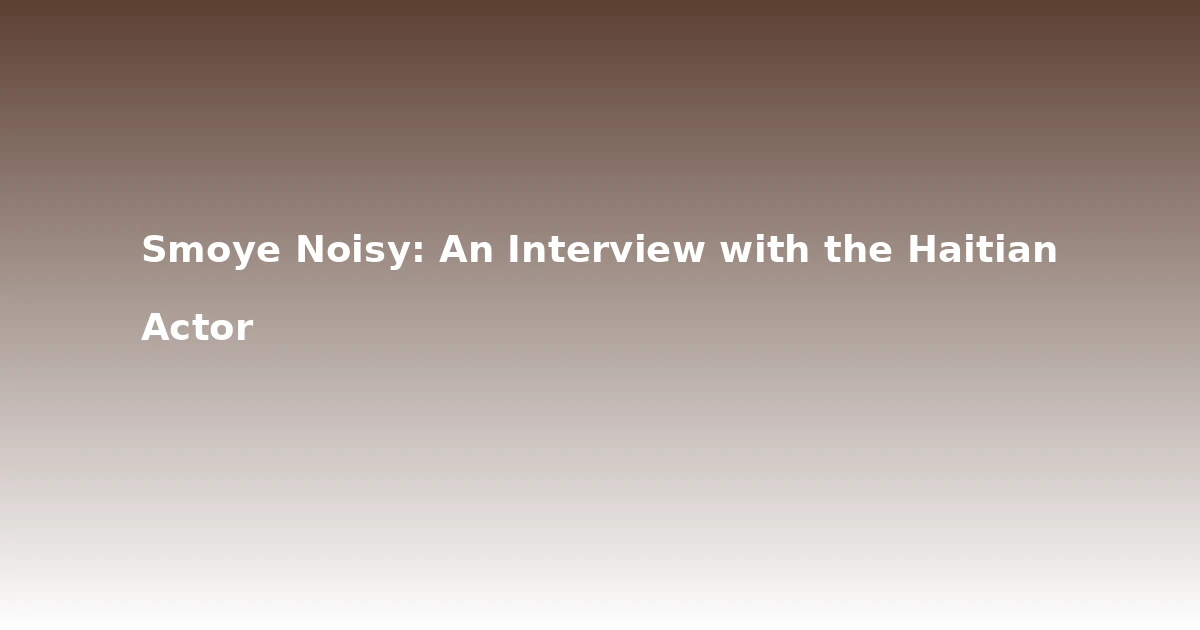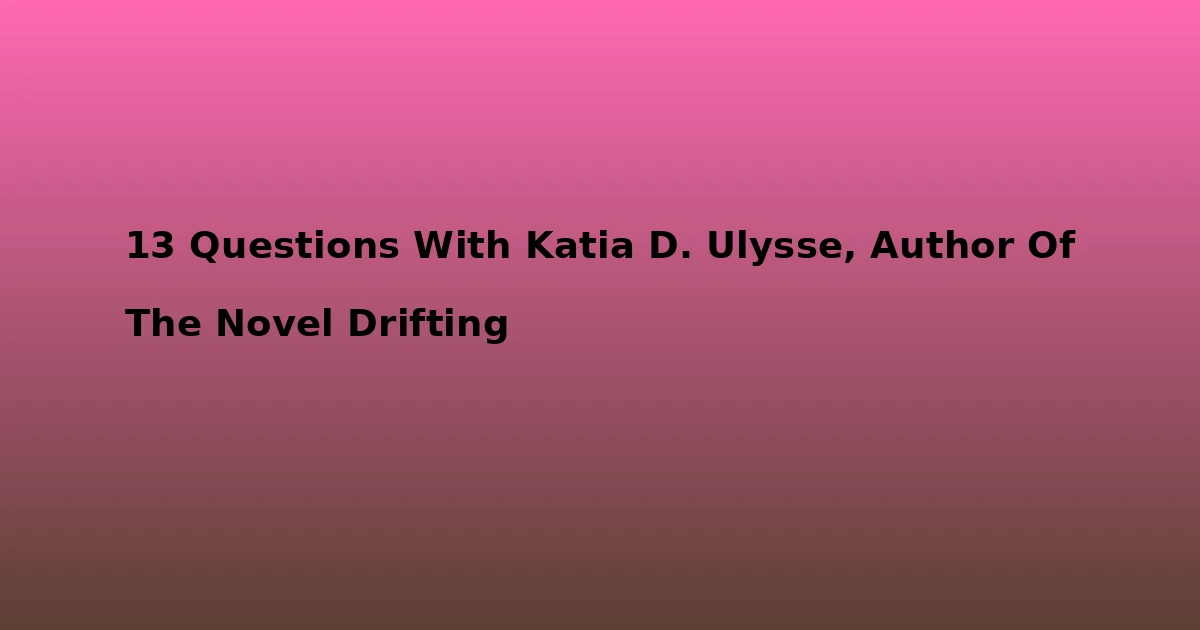How did you interest in film begin?
I’ve been fascinated with the film world for as long as I can remember. I started out as an aspiring actor. Did a few student films and served as an extra on several big budget productions. Ultimately, I decided to transition to the filmmaking part, in order to get things done and put out the stories that I wanted to tell.
A film is a big investment of one’s time, investment and other resources. When you set out to do one, what do you usually hope to accomplish?
I for one certainly hope to create a piece that can potentially outlive me physically. The beauty of film is that it always has the potential for long life—if it resonates with people. I once read an article where Ang Lee said the time and effort that went into making Hidden Tiger, Crouching Dragon surely took years out of his life.
I immediately understood and related to that statement. After all the sacrifice, blood, sweat and tears to go into making a movie, I’d like to think it has a resounding impact on someone’s life. Otherwise, I don’t know if it’s worth it. It’s extremely rewarding to be approached by someone who recently discovers a piece you created wrote or directed over ten years ago.
How important is a script to the success of a movie?
The script is the blueprint. It all starts with the script. I once read somewhere that you can make a bad movie, out of a good screenplay, but you can’t make a good movie, from a bad script.
With every film, I’ve learned not to sleep on this stage of the process and put the time needed to perfect the script. You can’t rush or put a timeline on this stage. Not to be clichéd, but writing really is re-writing.
Every filmmaker has a film that awaken this sense of wonder in him or her. And for you this film was…
Wow, that’s a tough one. I’ve seen a lot of movies!
In my teens, I worked as an usher at a movie theater and must’ve seen hundreds of films during that time alone. I’ll just throw one of many out there and say Juice. After that, I was like: “Someone’s putting me in a damn movie!” [Laughter]
Industry-speaking, writers and directors are often at odds at one another. So when you write and direct a project, as you did with Amour Infinity, and several projects afterwards, does the writer in you come in conflict with the director in you?
No, the two are usually in-sync! [Laughter] They share the same vision.
As a native New Yorker, are you influenced by Martin Scorcese and Spike Lee?
I’m a huge fan of both, but I’d be playing myself if I didn’t confess what a profound impact Lee had on my career. His influence can clearly be seen in my work—particularly in my early work.
Although I would later learn—and work with—of Melvin Van Peebles, Oscar Micheaux and the other forefathers, Spike was the first man of color who I witnessed in my time, write, produce, direct and star in his own movies…I think we all share an affinity for New York-BK in particular, has served as a backdrop to four of my six films.
That has to stop though. [Laughter] I have a crime drama called the Suspects of St. Mark’s Place, which also takes place in Brooklyn. After that film, I believe the affair will come to an end. NY is such a great backdrop for stories, man.
You were born in Brooklyn as the son of two Haitian immigrants Frantz and Marlene Lamothe, do you think that has had any bearing on your art?
Definitely! Especially my father. My father passed away five years ago, but when I was a kid, we’d go to the movies religiously.
He was a big film buff. That was definitely where it started.
Do you think it’s having too much on your plate, when you write, direct and produce a project?
As an independent filmmaker, it’s all I know, so I have nothing else to compare it to. I think that’s a good thing. I came in the game and learned the craft, as such.
It was a natural process. The stories were in my head, who better to tell it. I had to learn the logistics of how to get it made. Besides, Caribbean people are used to multi-tasking. [Laughter]
Do you think that film school is essential to learning the craft of filmmaking?
I don’t believe it’s essential…However, understand, that doesn’t mean one can just pick up and make a film. Even with raw talent and a knack for it, one must learn and respect the craft.
Sometimes that comes by way of shooting several films-even bad ones.
I must point out, I have several friends and colleagues, who have graduated from some of the country’s most prestigious film school and I have the utmost respect for them. I seek their counsel all day. Now, I didn’t have the luxury of attending film school but trust when I tell you, I put the work in.
It was a lifetime in the making. Long before I actually shot my first film—Amour Infinity—I read several literature on screenwriting, cinematography and the overall film process.
Is it vital—film school—to a filmmaker’s success?
No; it isn’t.
Most people think that the compound noun film director is another way of saying control freak. What advice do you have for those wanting to become directors—-to keep things balanced on the set?
I believe the director dictates the tone on a set.
It’s like being a passenger in a car driving 140 mph, bobbing and weaving through cars and obstacles.
Throughout this, the driver is composed and confident-not breaking a sweat. That energy carries out to those around you. On the flip side, if he’s sweating profusely and his hands is shaking, screaming, “Oh my God, I can’t do this.
We’re gonna crash.” I don’t care if he’s driving 10 mph, I’m jumping out. [Laughter] Confidence is a Mother…If one doesn’t believe in himself, why should others? Especially in cases where the director wrote the story—no one knows the story or can execute it better than you.
If that’s being a control freak, as opposed to controlling your destiny, oh well, guess I’m a closeted control freak. Maybe I’m in the right business after all.
Now, you actually have a Haitian-themed project The Promise Keeper.
We’ve started preliminary casting. I’m extremely excited about it. The film is loosely based on my childhood best friend and me. TPK is about two best friends—both of Haitian decent—from Flatbush and chronicles their twenty plus year relationship.
One gets deported back to Haiti and the other friend goes there for the first time ever, shortly after the earthquake of 2010. The film is about friendship, family and self discovery. We’re putting together a really great cast from the Haitian community.
Jimmy Jean-Louis, Jamie Hector, Garcelle Beauvais, and novelist extraordinaire Edwidge Danticat are attached, as is Golden Globe winner S. Epatha Merkerson.
French actor Eriq Ebouaney—who portrayed Patrice Lumumba in Raoul Peck’s Lumumba—has signed on to star in the film as well. There’s several non-Haitian roles in the film as well. Mona Scott-Young has since signed on as an executive producer.
Unik Ernest is an Executive producer. Marc Baptiste is a co-producer. I’m not at liberty to mention some other names just yet, but stay tuned for some additional surprises.
Do you see this as a one-time thing or are Haiti-themed, or Haitian-focused plot lines something you hope to explore again?
They say never say never. You never know…I’m not against it. I will say this; this project in particular is very special.
It will be my sixth film and perhaps my most personal, to date. Everyone involved can feel there’s something special about this one. One thing is for sure, I would never make the mistake of trying to replicate or repeat the journey of The Promise Keeper. It just doesn’t work that way.
Last Updated on December 2, 2025 by kreyolicious



